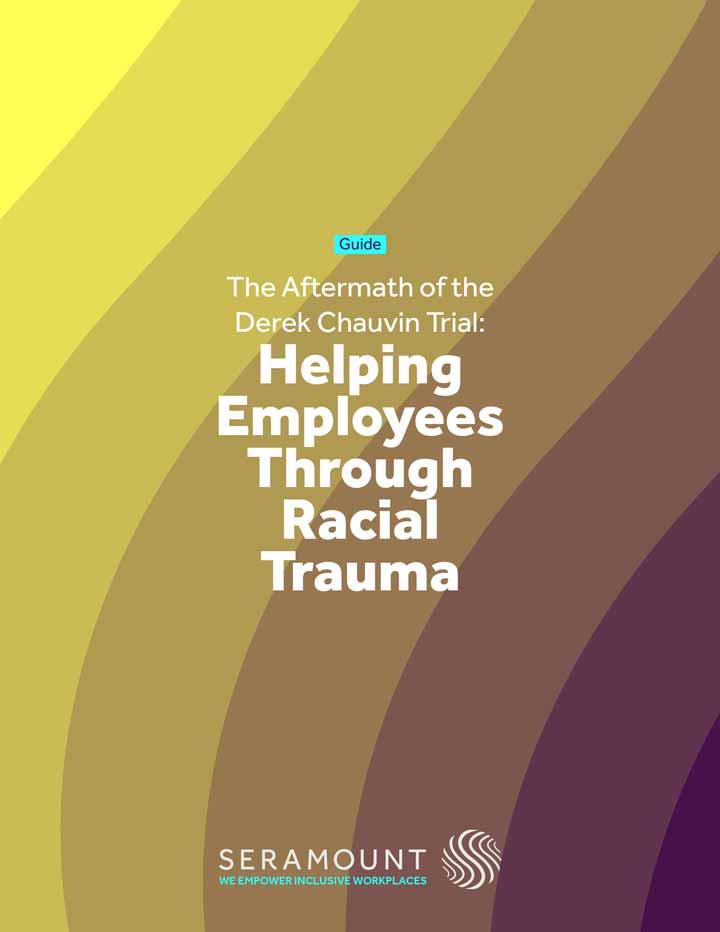While racism has existed for many centuries, these recent experiences have escalated racial-trauma in the Black community. Mental Health America defines racial-trauma as the “mental and emotional injury caused by encounters with racial bias and ethnic discrimination, racism, and hate crimes.” When people feel the effects of racial-trauma, they start “paying” emotional tax—the need to protect oneself from unfair treatment by spending time and energy to prepare for potential acts of bias, exclusion, or discrimination.
The current environment has elevated the emotional tax on Black employees, in particular, playing out in different interactions such as being hyper-vigilant around coworkers, bracing for uncomfortable conversations, avoiding social interactions, and perhaps calling out of work. This constant stress can be overwhelming, often resulting in the need for some employees to “cover” themselves, which serves as a barrier to creating cultures of inclusion and belonging. Covering is a coping mechanism that can prevent an individual from being their authentic selves and is used to manage or downplay differences.
In this guide, Seramount addresses a number of critical topics:
- How can organizations best support their Black employees as well as other employees during these tumultuous times?
- What lessons can be drawn from the allyship and upstander actions demonstrated during George Floyd’s murder and the subsequent Chauvin trial?
- We will cover recommendations and considerations to assist you:
- Preparing for a Crisis
- Handling trauma in the workplace
- Leadership Actions In a Trauma-Informed Workplace
- Empathetic Leadership
- Social Contracts
- Being an Upstander
- Taking Care of Yourself

